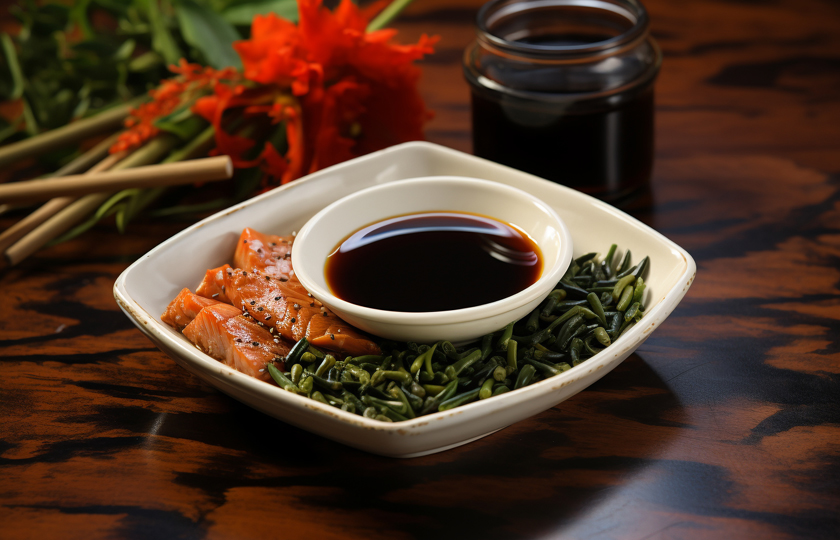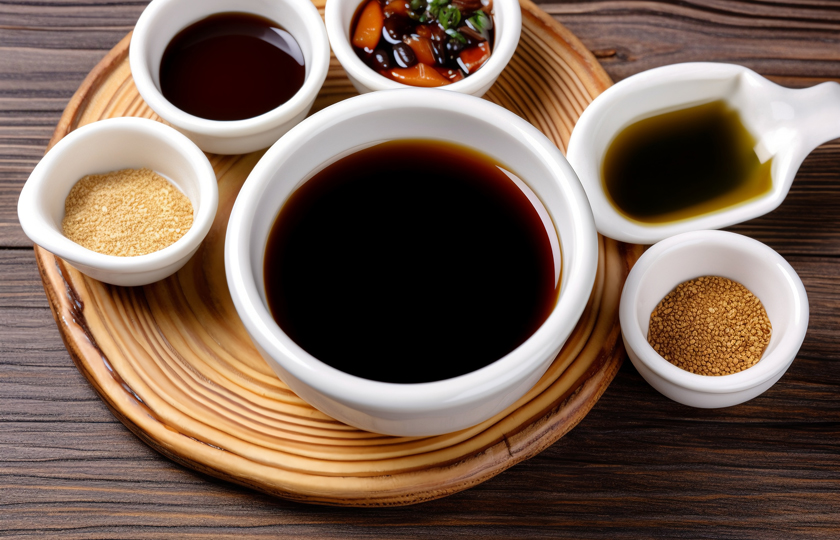Does Soy Sauce Go Bad? Find Out Before You Use It!

In the kitchen, soy sauce is a good helper for our seasoning. But do you know? Soy sauce also has its "shelf life". So, will soy sauce expire? Let's explore it together!
Can soy sauce also expire?
Yes, soy sauce will also expire.
Generally speaking, under unopened conditions, soy sauce can maintain its original quality, flavor and safety within the shelf life specified by the manufacturer.
However, once soy sauce is opened, its shelf life may be affected.
Because the opened soy sauce is more easily affected by air, humidity and microorganisms. These factors may cause the quality of soy sauce to decline or deteriorate.
Does soy sauce expire in the fridge?
Soy sauce will also expire in the refrigerator.
Although the low-temperature environment of the refrigerator can slow down the speed of soy sauce deterioration and inhibit the growth and reproduction of microorganisms, it cannot completely stop the natural changes of soy sauce components. The organic components in soy sauce will still undergo oxidation reactions over time, leading to changes in flavor and color.
Moreover, soy sauce itself has its own shelf life setting, which is the result of considering various factors comprehensively.
Even if it is placed in the refrigerator and exceeds the shelf life, soy sauce may still appear turbid, with increased precipitation and produce peculiar smell and other deterioration phenomena. Such soy sauce is not suitable for consumption.
Can I use expired soy sauce?
Expired soy sauce is not recommended for use.
After soy sauce expires, its quality and safety cannot be guaranteed. Even if there are no obvious signs of deterioration visible to the naked eye, harmful microorganisms such as bacteria and molds may have already grown. Consumption may be harmful to health.
In addition, the taste and flavor of expired soy sauce will also be affected and it will no longer be delicious. Used for cooking, it cannot provide normal seasoning effects.
How do I know if soy sauce is bad?
Observe the appearance:
Normal soy sauce should be dark brown or reddish-brown and have a clear texture.
If the color of soy sauce becomes very light or yellowish, there is an unknown substance on the upper layer and the texture becomes turbid, then it may have gone bad.
Smell its odor:
Fresh soy sauce should have a strong soy sauce fragrance.
If soy sauce smells sour, musty or has other peculiar odors, then it may have gone bad.
Taste the flavor:
Normal soy sauce will have an obvious soy sauce aroma.
If soy sauce tastes sour or has other peculiar odors, then it may have gone bad.
Check the bottle body:
If there are mold spots or other foreign objects on the soy sauce bottle body, it also means that the soy sauce has been contaminated and should not be continued to be eaten.
Check the shelf life:
This is the most direct way. If soy sauce exceeds the shelf life indicated on the packaging, even if there is no obvious change in appearance and odor, it may have gone bad. It is best to use it with caution.

How long does soy sauce last when opened?
Under normal indoor environment (temperature 15 - 25℃, relative humidity 40% - 60%), if properly stored, ordinary opened soy sauce can be kept for 6 - 12 months.
During the storage process, pay attention to sealing the container well and placing it in a cool, dry and dark place. After each use, the bottle cap should be tightened as soon as possible to reduce the contact between soy sauce and air, which can effectively delay the deterioration speed.
How to properly store soy sauce?
1. Store in a sealed manner
After using soy sauce, the bottle cap should be tightened immediately to ensure that the container is well sealed.
2. Store away from light
Soy sauce should be placed in a place away from light to avoid direct sunlight.
3. Store in a cool and dry environment
Soy sauce is suitable to be stored in a cool and dry environment. The ideal storage temperature is around 15-25℃.
4. Refrigerate in some special cases
If the indoor environment temperature is too high or the humidity is relatively large, it can also be considered to be refrigerated to extend its shelf life.
Refrigerated soy sauce may have a slightly poorer fluidity when in use. This is a normal phenomenon and it can be restored to normal use after being left for a while.

What happens if you eat expired soy sauce
If you accidentally eat expired soy sauce, don't be too nervous. Pay attention to observation. Especially if there are no obvious signs of deterioration (such as peculiar smell, mold spots, color change, etc.), it usually will not have a serious impact on health.
If the soy sauce has deteriorated, such as having a peculiar smell or getting moldy, then eating it may cause symptoms such as indigestion and stomach discomfort. It is recommended to seek medical attention as soon as possible.
What condiments never expire?
The following are some seasonings that are relatively durable and not easy to deteriorate:
Salt
The main component of salt is sodium chloride. It has stable chemical properties and will not decompose or volatilize over time. As long as it is kept dry, salt can be stored indefinitely.
Sugar
Solid sugars, such as white granulated sugar, soft white sugar, rock sugar, etc., can be stored for a long time due to their low water content and the difficulty for microorganisms to grow.
Vinegar
Vinegar is an acidic seasoning and has an antiseptic effect, so it is relatively durable. Especially mature vinegar. The longer it is stored, the richer the vinegar flavor.
Honey
Pure honey has a natural antiseptic effect due to its high sugar concentration and acidic environment and can be stored for a relatively long time under appropriate storage conditions.























